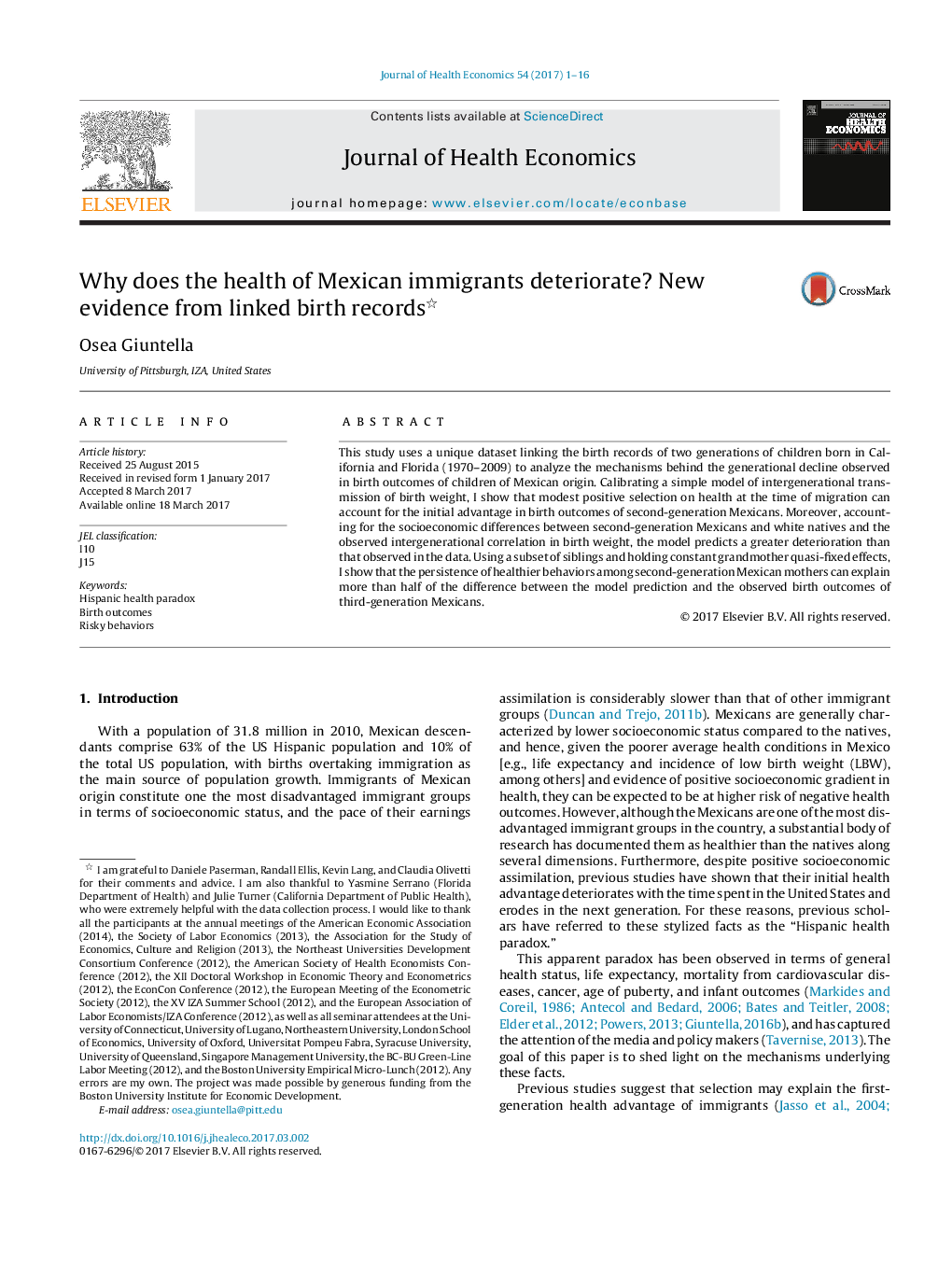| Article ID | Journal | Published Year | Pages | File Type |
|---|---|---|---|---|
| 5100754 | Journal of Health Economics | 2017 | 16 Pages |
Abstract
This study uses a unique dataset linking the birth records of two generations of children born in California and Florida (1970-2009) to analyze the mechanisms behind the generational decline observed in birth outcomes of children of Mexican origin. Calibrating a simple model of intergenerational transmission of birth weight, I show that modest positive selection on health at the time of migration can account for the initial advantage in birth outcomes of second-generation Mexicans. Moreover, accounting for the socioeconomic differences between second-generation Mexicans and white natives and the observed intergenerational correlation in birth weight, the model predicts a greater deterioration than that observed in the data. Using a subset of siblings and holding constant grandmother quasi-fixed effects, I show that the persistence of healthier behaviors among second-generation Mexican mothers can explain more than half of the difference between the model prediction and the observed birth outcomes of third-generation Mexicans.
Keywords
Related Topics
Health Sciences
Medicine and Dentistry
Public Health and Health Policy
Authors
Osea Giuntella,
